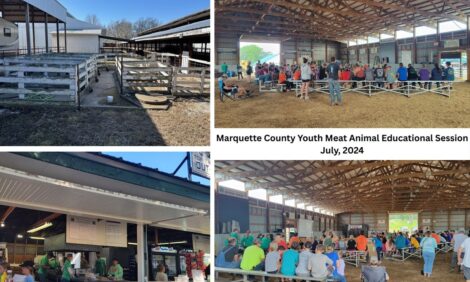



Hatchery Excellence Seminar reveals advantages of marginal gains
As growth in the UK poultry industry continues to soar, with egg consumption rising by 5-6 percent yearly and poultry meat consumption increasing by 3.7 percent last year1, driving chick quality and performance has become a key focus for the sector.Demonstrating the value of hatchery management to the sector, last week MSD Animal Health hosted an event that saw over 75 experts from across the globe come together to discuss the latest industry developments and best practice principles, with an emphasis on the role of marginal gains driving chick quality.
“Improving the incubation and hatch process plays a vital role when delivering high performing birds to the rest of the supply chain. This event has provided a forum for sharing knowledge, expertise and experiences with like-minded individuals, all of whom play a significant role in advancing hatchery performance across the industry,” explained Andy Payne, hatchery and broiler specialist at MSD Animal Health.
The event, which was the first of its kind, looked at all aspects of the hatching process, with a focus on incubation to ensure the optimum environment for embryo development, and the benefit of implementing marginal changes to optimise the hatch window and improve chick quality.
“Incubation temperature has a significant impact on a chick’s future viability and adjusting temperatures to determine the optimum can significantly improve hatch rate. Research has shown that slightly raising this temperature can help to make sure that all eggs hatch on time, reducing the hatch window, ultimately improving chick uniformity and quality,” said Ron Meijerhof, managing director at Poultry Performance Plus.
“Slightly increased eggshell temperatures are sometimes needed to avoid eggs on cold spots getting too cold and failing to hatch on time. However, it is crucial to only make minor temperature adjustments as large increases or decreases can have a detrimental impact on the developing chick. Controlling extremes is particularly important during incubation and eggshell temperature of 37.7⁰C remains the goal for optimum chick quality.”
Throughout the day, speakers discussed the importance of controlling environmental extremes, including Willem van Gent, Co-owner at van Gent Hatchery, who discussed learnings from his family-run hatchery in the Netherlands. During his presentation he highlighted that careful attention to detail is needed when looking at biosecurity, animal welfare and genetic security.
“We are delighted with the success of this event and the platform it has provided for industry experts to come together and discuss best practice. These insights will help to ensure that we continue to advance all aspects of hatchery management, striving for optimum chick quality,” added Mr Payne.









